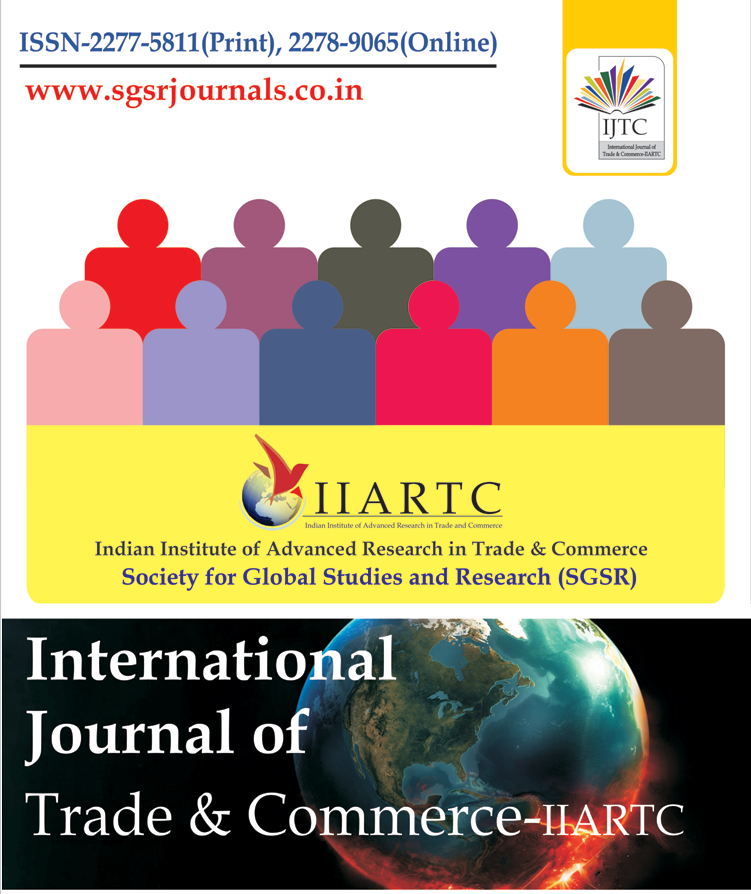Home ⇨ International Journal of Trade & Commerce-IIARTC

International Journal of Trade & Commerce-IIARTC
Impact Factor (IF):5.135 (COSMOS), IF:7.249 (ISRA), IF:3.721 (ISI)
ISSN:2277-5811 (P), ISSN:2278-9065 (O)
Frequency: Half Yearly
Compulsory Licensing under Patent Law in India with Reference to Natco v/s Bayer Case
The grant of patent follows with certain aftermath like the exclusive authority of the inventor leading to a high price of the invention and where the invention is something meant for the public at large it still remains out of reach. Thus, with changing times and advancement in technology concept of compulsory license is evolved. Compulsory licensing has been likened to the existence of a willing buyer against an unwilling seller by forcing a patentee to license the invention, a country can ensure that the patent does not exist on its books just to manipulate or otherwise restrict the development and marketing of the invention by one of the country’s own citizens. Compulsory licensing is a fundamental tool that developing countries may use in certain conditions to ensure that poor people have access to necessary medicines and such other necessity. This measure shall produce positive social effects and promotes social well – being to the extent that it obviates the drawbacks of a patent system and creating an efficient tool for access to the necessary inventions e.g. drugs, medicines etc. In this paper we have explained the impact of the judgment in Natco v/s Bayer case and its significance for developing countries in the field of compulsory licensing.
Author:Yogendra Kumar
Abstract:The grant of patent follows with certain aftermath like the exclusive authority of the inventor leading to a high price of the invention and where the invention is something meant for the public at large it still remains out of reach. Thus, with changing times and advancement in technology concept of compulsory license is evolved. Compulsory licensing has been likened to the existence of a willing buyer against an unwilling seller by forcing a patentee to license the invention, a country can ensure that the patent does not exist on its books just to manipulate or otherwise restrict the development and marketing of the invention by one of the country’s own citizens. Compulsory licensing is a fundamental tool that developing countries may use in certain conditions to ensure that poor people have access to necessary medicines and such other necessity. This measure shall produce positive social effects and promotes social well – being to the extent that it obviates the drawbacks of a patent system and creating an efficient tool for access to the necessary inventions e.g. drugs, medicines etc. In this paper we have explained the impact of the judgment in Natco v/s Bayer case and its significance for developing countries in the field of compulsory licensing.




